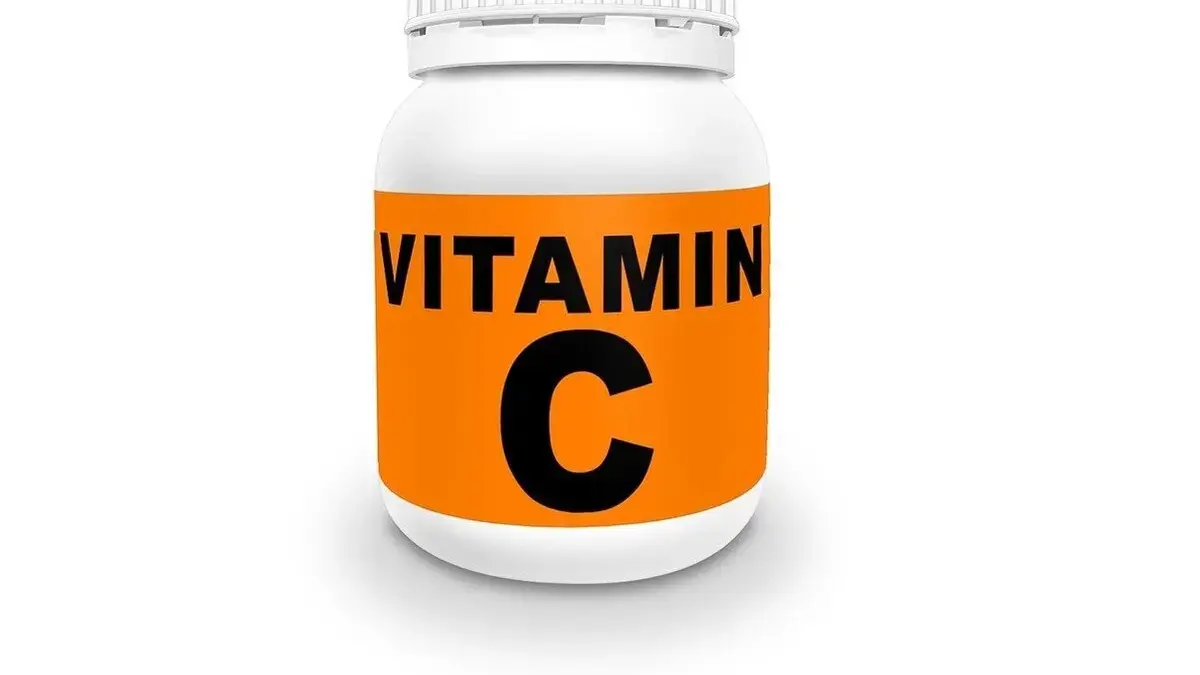Diabetes is a metabolic disorder characterized by hyperglycemia, disturbances in antioxidant enzymatic functions, increased glycosylated hemoglobin, and elevated oxidative stress. These factors contribute to several serious health complications. Among them, cardiovascular disease (CVD) is of great concern.
Interestingly, vitamin C deficiency is very common in diabetic patients, and low vitamin C levels are thought to play a role in the progression of metabolic disorders such as diabetes and cardiovascular diseases.
WHY IS PLASMA CONCENTRATION OF VITAMIN C LOW IN DIABETIC PATIENTS?
The plasma concentration of vitamin C is usually subnormal or low in diabetic patients. This may be due to increased oxidative stress and chronic inflammation caused by visceral or abdominal fat (obesity), as well as excessive urinary excretion of vitamin C. Furthermore, there is competition between blood glucose and vitamin C for cellular uptake, as both use the same transport system (GLUT transporters). This competition results in decreased intracellular vitamin C levels despite adequate intake.
VITAMIN C AS A POTENT ANTIOXIDANT
Vitamin C (ascorbic acid) is a potent and essential antioxidant that helps reduce oxidative stress by scavenging free radicals responsible for cellular damage.
Moreover, it promotes vasodilation by enhancing the release of nitric oxide (NO) within blood vessels, which helps lower blood pressure. Vitamin C also prevents atherosclerosis (hardening of arteries) by inhibiting the oxidation of low density lipoprotein (LDL), a key process in plaque formation and endothelial dysfunction.
EFFECTIVENESS OF VITAMIN C IN REDUCING CARDIOVASCULAR RISK IN DIABETIC PATIENTS
Given its antioxidant potential, vitamin C has been hypothesized to be protective against cardiovascular diseases and beneficial in diabetes management, since oxidative stress is a common underlying factor in both conditions.
However, clinical findings remain inconsistent. Some studies show beneficial effects, while others report neutral or even adverse outcomes.
Notably, a study published in The American Journal of Clinical Nutrition (2008) observed that postmenopausal diabetic women who took high doses of vitamin C supplements had a higher risk of cardiovascular disease, suggesting that excessive intake may reverse its protective role.
This raises an important question, why might high dose vitamin C supplements have harmful effects in this group? Let’s explore possible mechanisms.
POSSIBLE MECHANISMS OF ACTION INCREASING CARDIOVASCULAR RISK IN DIABETIC WOMEN
1. Pro-oxidative Effects of Vitamin C
In diabetic patients, especially those with iron metabolism disturbances, excess iron may interact with high doses of vitamin C, leading to the production of reactive oxygen species (ROS) via the Fenton reaction. In such cases, vitamin C may act as a pro-oxidant rather than an antioxidant, thereby increasing oxidative stress and damaging vascular tissues, ultimately raising the risk of cardiovascular disease.
2. Effects on Blood Vessels
High doses of vitamin C may also disrupt endothelial function, leading to reduced nitric oxide bioavailability. As nitric oxide is essential for vasodilation and blood pressure regulation, its deficiency contributes to endothelial dysfunction, hypertension, and atherosclerotic plaque formation.
3. Formation of Glycated Proteins
Excessive vitamin C intake can lead to the formation of glycated proteins when it reacts with glucose molecules. These advanced glycation end products (AGEs) accelerate atherosclerosis, one of the main causes of heart attack and stroke in diabetic individuals.
DOES DIETARY VITAMIN C ALSO INCREASE CARDIOVASCULAR RISK LIKE SUPPLEMENTS?
Interestingly, dietary vitamin C does not appear to increase cardiovascular risk. In fact, several studies suggest that vitamin C obtained from fruits and vegetables may have protective effects against cardiovascular diseases.
WHY DOES THIS DIFFERENCE EXIST?
The difference between dietary and supplemental vitamin C lies in their biochemical balance.
Dietary vitamin C is consumed along with other antioxidants, vitamins, minerals, fiber, and phytochemicals, which maintain a natural redox balance in the body. This synergy enhances its antioxidant action and prevents oxidative overload.
In contrast, high-dose supplemental vitamin C lacks this balance and may tip the redox state toward pro-oxidation, particularly in individuals with metabolic dysfunction such as diabetes. Therefore, the biological response depends on the form, dose, and metabolic condition of the individual.
CONCLUSION
In summary, high doses of vitamin C supplements may increase the risk of cardiovascular diseases in postmenopausal diabetic women, likely due to their pro-oxidative effects and impact on vascular function. Conversely, dietary vitamin C from natural food sources appears to be protective and beneficial for cardiovascular health in diabetic patients.
Future long term randomized controlled trials are needed to establish a definitive understanding of how vitamin C dosage and source affect cardiovascular risk in diabetes.
FAQs
1. Does vitamin C help control blood sugar in diabetic patients?
Vitamin C may slightly improve fasting blood glucose and HbA1c levels by reducing oxidative stress, but the effect is mild and not a substitute for standard diabetes medications or dietary control.
2. What is considered a high dose of vitamin C?
A high dose generally refers to more than 1,000 mg (1 gram) per day. Such levels may increase the risk of gastrointestinal discomfort, kidney stones, and in diabetic women potential cardiovascular complications.
3. Can diabetic patients safely take vitamin C supplements?
Yes, but only within recommended dietary limits (75–90 mg/day) unless prescribed by a healthcare professional. It’s safer to obtain vitamin C through dietary sources like citrus fruits, berries, kiwi, and bell peppers.
4. Why are postmenopausal diabetic women at higher cardiovascular risk with high-dose vitamin C?
After menopause, estrogen levels drop, reducing antioxidant protection. When combined with diabetes-related oxidative stress, high dose vitamin C may shift from an antioxidant to a pro-oxidant, aggravating vascular damage.
5. Is natural vitamin C from food different from supplements?
Yes. Natural vitamin C from fruits and vegetables works synergistically with other nutrients such as flavonoids, carotenoids, and fiber, which stabilize redox balance something isolated supplements cannot replicate.
DISCLAIMER
This content is for educational purposes only and is not a substitute for professional medical advice, diagnosis, or treatment. Individuals with diabetes or cardiovascular disease should consult their physician or a registered dietitian before starting or changing any supplement regimen.
CALL TO ACTION
Maintaining cardiovascular health in diabetes isn’t just about medication it’s about balance. Focus on whole food nutrition, regular exercise, and personalized medical guidance. If you’re using vitamin supplements, speak with your healthcare provider to ensure they’re safe and effective for your specific condition.
Read more: https://pharmahealths.com/depression-associated-health-consequences/
REFERENCES
1. Lee DH, et al. Vitamin C supplementation and risk of cardiovascular disease in women with diabetes: the Iowa Women’s Health Study. Am J Clin Nutr. 2008;88(2):408–416.
2. Chen L, et al. Oxidative stress and diabetic vascular complications: mechanisms and therapeutic implications. Curr Med Chem. 2019;26(35):6784–6804.
3. Jacob RA, Sotoudeh G. Vitamin C function and status in chronic disease. Nutr Clin Care. 2002;5(2):66–74.
4. Tu H, Li H, Wang Y. Dietary versus supplemental antioxidants in chronic disease prevention. Nutrients. 2021;13(8):2706.
5. Institute of Medicine (US). Dietary Reference Intakes for Vitamin C, Vitamin E, Selenium, and Carotenoids. National Academies Press; 2000.







